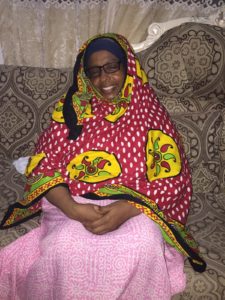Of the 6,500 different languages we have on earth, one is bound to encounter a variety of rich slang or colloquial expressions that are exchanged amongst various segments of societies. Context is important in the usage of such terms, as what can be a colloquial term of endearment in one situation can be inappropriate and even offensive in a different setting. These terms can possess positive or negative messages and their use can reveal the nature of relationships between speakers. Appropriate use of slang depends on the age, sex, and social status of the speaker in the context of person or group engaged in dialogue (again, factors such as age, sex, and social status). As I travelled to Zanzibar to learn Kiswahili, I wanted to make sure I was learning the intricacies of the language, both inside and outside the classroom. With all the benefits of formal learning inside the classroom, nothing can educate a language learner more than experiential knowledge gained from interactions with friends and family in the home and in society.

My Brother, Muhamad. Photo: Nyakeh Tuchscherer
I did not have to go far to discover the use of Kiswahili slang. My host brother Muhamad and our friends in the neighborhood use slang. They have been helpful in providing insights and explanations to help me navigate various linguistic and cultural terrain. For the most part, however, it has been through experience speaking, listening, and engaging others that has taught me what slang was appropriate in terms of people being addressed and social contexts.
In Zanzibar the most common greeting term for young people is mambo which means “what’s up?” As my brother Muhamad explained to me, mambo is considered slang to be used with friends, especially those close in age.

My Mother, Mama Adila. Photo: Nyakeh Tuchscherer
As commonly as the slang term mambo is used, society in Zanzibar is built upon respect so the word would be regarded as disrespectful if used to greet an elderly person or even someone senior in the family or society at large. My host mother, Mama Adila, explained to me that in Swahili culture one must greet an elder with Shikamoo or Cheichei. In Kiswahili, Shikamoo literally translates as “I am beneath your feet,” meaning the person extending the greeting respects the individual being addressed. Cheichei is a slightly nuanced variant of a respectful greeting, employed as a slang term of endearment towards babies or senior aged citizens.
Kiswahili is not only a rich and vibrant language, but a diverse one too. For an insightful article on Kiswahili, see Elsie Eyakuze’s “A love letter to Kiswahili, those who speak it, and those who think they do”

My neighborhood, Kikwajuni. Photo: Nyakeh Tuchscherer

Carved door in Kikwajuni. Photo: Nyakeh Tuchscherer